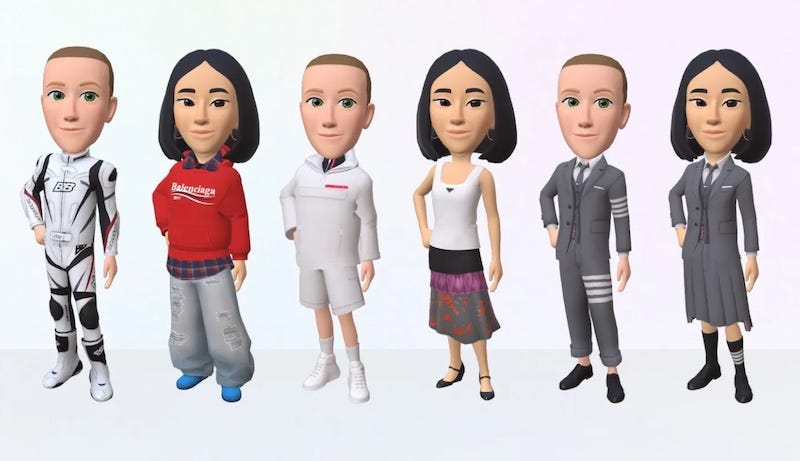Are derivative games now the only way to hit it big?
A big discovery question, and no clear answer.
[The GameDiscoverCo game discovery newsletter is written by ‘how people find your game’ expert & company founder Simon Carless, and is a regular look at how people discover and buy video games in the 2020s.]
We’re back and it’s Wednesday - what other questions do you have for us? Seriously, thanks for supporting GameDiscoverCo on its unending journey to poke & prod at the decaying cadaver of game discoverability. (We’re your friendly autopsy technicians.)
Next up? On Friday, our Plus subscribers (please be one of those!) get our regular analysis of new trends in Steam & console games - including exclusive data & insight. And for Monday’s free newsletter, we’ll chat to the lead dev of the (nearly 500k units sold!) breakout sandbox game Hydroneer. But for now… let’s talk originality in games?
[Care to support us & get lots of extra PC and console analysis and data? Yes? Our GameDiscoverCo Plus paid sub has a data-rich weekly PC/console game trend analysis, interactive Steam ‘Hype’ charts, two eBooks, a member-only Discord & more. Sign up today.]
Game discovery, familiarity, & the ‘fast follow’…
After ‘not-E3’, we saw a few comments on the similarity of games shown in the big showcases. Callisto Protocol (above), is a legit space horror ‘spiritual sequel’ from the devs of Dead Space. But the same Summer Game Fest showcase saw a host of other scary space games.
The Guardian’s weekly game newsletter dug into this, in part by referencing an excellent, if high-brow recent blog post by Cantata dev Kyle Kukshtel on what he rather fascinatingly calls ‘game design mimetics’. But what on earth is that?
Kyle’s overall point is simple: “If the role of mechanics design in a game is to best serve the content of the game, be legible to the player, and not introduce too much uncertainty into the middle of a production, the simplest answer to ‘what should we do about the design’ is to just ‘copy what already works’”
I’ve chatted to Kyle quite a bit during his game’s development, and actually referred to Cantata as an “unconventional isometric strategy game” in our recent Plus-exclusive round-up on its recent Steam Early Access launch, adding that it was “maybe a bit tooo abstract”. So… there’s real meat and experience to his arguments here.
This got me to reflect a bit on our advice to devs and publishers, too. Kyle also makes the spicy point: “A game production environment that prioritizes safe choices and a retroactive lens will slowly dull its ability to think outside of a slowly narrowing field of possibilities.” That sounds… bad, right?
Which led me to think - is GameDiscoverCo part of this same problem, always suggesting you stick to certain genres, but with a slight twist? That is absolutely advice that we give. Elsewhere, Kate Gray just wrote a piece at NintendoLife on the neat ‘textual comparison’ game writers and marketers use as shorthand: “Stardew-like-roguelike with Soulsborne elements”, etc. It’s the same derivative issue, potentially.
The obvious answer is that this behavior can be commercially rewarded. If you look at this recent postmortem of 20 Minutes Till Dawn, the dev was working on a much bigger project, but shifted to a high quality ‘fast follow’ of Vampire Survivors - and had a good-sized hit in response. And in mobile, the ‘merge’ puzzle mechanic is now a full game genre.
So here’s what I’d say. As supply & demand shifts on PC/console, you have to be more laser-focused on the size of the market you are addressing. And to buy your video game at volume, players need to feel excited by the concept. In games, this comes down to: competitive visual look/gameplay style on first glance, if it has a hot external IP, and (somewhat less) the dev’s history.
In TV/movies, there are other visibility anchors - particularly actors, who can genre-hop with aplomb. But it’s also more about IP there too recently - see the Star Wars/Marvel multiverses, etc. And most importantly, networks and streaming services commission TV shows & pay for them in full, based on subjective takes - some of which are prestige-centric, in addition to commercial.
So, I don’t know that this harder competition stage in games kills innovation outright. But there’s certainly a danger that a lot of the new advances are clustered around refining select hot microgenres, rather than going new and interesting places.
And the one thing that’s different in games - versus TV/movies - is that the financial barrier to entry for games is so much lower. You can make any game you like, any time - just not as your day job! And that’s where it get complex.
Does your choice of genre or art style - or just the amount of competition - limit your audience enough that you get paid as a hobbyist game dev, when you’re actually planning to be a professional one? That seems to be the problem that a lot of smaller devs wrestle with currently. That trade-off is at the heart of the ‘mimetics’ discussion…
Reminder: wishlist/sales estimates are rouuugh, still worth poking at…
Having chatted to a few readers about this recently, we realized the subject of ‘can I intuit Steam sales from wishlists?’ was worth re-examining, since thousands of new subscribers joined since we did the last newsletter on this subject in July 2021.
The short answer is: the amount of wishlists you have at launch on Steam is very, very vaguely indicative of the potential success of your game. You’re not going to launch with 100 wishlists and get 10,000 units sold in your first week. Or launch with 300,000 wishlists and sell 300 units in Week 1. Beyond that… ???
But you have to start somewhere on estimates. And we’re recirculating the two spreadsheets we sent out last July, and still find useful:
GameDiscoverCo made a super simple revenue estimate spreadsheet that you can copy and then edit. Only two variables can change: the number of Steam wishlists at launch, and the average global price in USD of your game. From there, it suggests possible net revenue over 3 years on both console and PC.
The wonderful folks at narrative game publisher Fellow Traveller made its internal sales mapping template - which it shares with all its developers - available for all, too. (Again, copy the spreadsheet to edit it.) It uses Month 1: Launch Wishlist numbers, as opposed to Week 1, and has a whole range of possible outcomes based on conversion rate. More info here.
Since GameDiscoverCo made our simple spreadsheet in 2021, we’re inclined to say that our median ‘wishlist to sales’ conversion rate (2,000 Steam units sold in Week 1, if you have 10,000 Steam wishlists at launch?) may be a little bit too high.
We’ll have more data on this in early July. But the current median may be closer to 0.15 (1,500 W1 units for 10k wishlists) - while going as low as 0.02 (200 units!) and as high as 1.5 (15,000 units!) in some cases.
Another reminder: the range, as documented here, is very, very broad and not that predictive. Lots of things can happen - streamers picking up your game (or not!), Overwhelmingly Positive or Mixed reviews, crowded or open subgenre markets. But some vague, semi-indicative idea is still better than nothing.
The other thing that we think’s been going on in the last year: declining standalone console sales opportunities, especially on Nintendo Switch, but a possibility of a console subscription deals on Xbox/PC Game Pass or PlayStation Plus offsetting that. Maybe we’d put PC/all console revenue ratios closer to 60/40 or even a bit more PC-favored… with a binary chance of a redemptive sub deal, of course.
The game discovery news round-up..
Let’s move into our final phase for the week. And we’re returning to the game discovery and platform news, as follows:
It’s a rough time to be doing large B2C/trade shows, exhibitor-wise, judging by E3’s non-appearance, and now PlayStation confirming it won’t be exhibiting at the first post-pandemic physical Gamescom: “Other companies including Nintendo, Activision Blizzard and Take-Two Interactive have said they will not attend Gamescom’s return.”
Ukrainian news site Babel alleges that Russian makers of games like World Of Tanks, War Thunder and Escape From Tarkov - which still do well in the West - aren’t as separated from the Russian state or support for the war as they really should be.
As well as the patent image for Valve’s upcoming ‘Deckard’ VR headset, here’s a lot more info via datamining on possibilities for the Index follow-up. Among other things, it appears: “Steam VR is adding systems that will allow a PC to set up a “Wi-Fi Hotspot” for Wi-Fi enabled HMDs like Deckard to easily connect to.”
Here’s Steam’s top-grossing new titles for May 2022, including co-op puzzle bangers (We Were Here Forever), Heroes Of Might & Magic-inspired bangers (Songs of Conquest), and ‘what if?’ battle sandbox bangers (Ultimate Epic Battle Simulator 2), among others.
Finishing off the ‘Roblox moderation good?’ saga, New World Notes got some detailed comments from People Make Games’ Quintin Smith following a Washington Post article on PMG’s Roblox coverage: “As for this line about their moderation team, they wheel it out every time that their moderation is questioned as if it's a shield against any criticisms. It's not!”
Microlinks, pt.1: Square Enix has made a strategic investment in cloud game provider Blacknut; Discord is rolling out first-party automodding features to help everyone deal with spam & naughtiness; here’s a retrospective on a game that grossed $520k on Steam over 3 years, with data & commentary.
Not content with hardware box shortages (PS5, Xbox Series X, etc), there are also shortages of Xbox controllers: “Major retailers in multiple regions are completely sold out of Xbox Wireless Controllers, and the peripherals seem to be particularly scarce across Europe… stock seems to be somewhat more readily available in the US for now.”
The VGInsights crew crunched the numbers on geographical location of Steam publishers, concluding: “Almost a quarter of the 2,337 publishers come from the United States. In fact, the only country in the top 10 not being from the North America or Europe is Japan. 3% of the publishers are from there.”
Another sign that Epic Games Store’s exclusivity window strategy has changed? The EGS-only window for Tiny Tina’s Wonderlands was only 3 months, way less than previous deals: “2K and Gearbox Software announced that Tiny Tina’s Wonderlands is releasing at 10:00 a.m. PDT on June 23, 2022, on Steam.”
Microlinks, pt.2: Meta is launching a digital clothing store (above) where you can purchase outfits for your avatar; the Xbox app now lets you know if games play well on your PC before you download them; is Web3 culture a bit like famous U.S. MLM health/beauty firm Amway’s culture?
Finally, the @mobilegamehell Twitter account - compiling janky, horrible, and bizarre ‘viral’ F2P mobile game video ads - has been around for a few months now. But this one is a particularly rando(m) recent highlight for us:
[We’re GameDiscoverCo, an agency based around one simple issue: how do players find, buy and enjoy your premium PC or console game? We run the newsletter you’re reading, and provide consulting services for publishers, funds, and other smart game industry folks.]




